By Prof. Dr. Nadiminty Sree Rāmachandra Śāstry
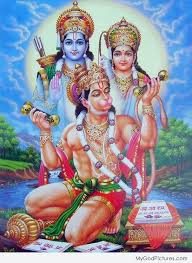
Many ancient pictures and texts show that Hanumān is an accomplished musician. His daily singing of invocations to Rāma are said to be strictly according to the traditional ragas and other musical motifs. It is mentioned in the Vālmiki Rāmāyana that Hanumān is such a learned Sanskrit grammarian and linguist that He was able to decipher the inscription on Rāma’s ring.
Out of hundreds of monkeys, Srī Rāma seeks only Hanumān as his messenger, entrusts search of Sītā and to Him unhesitatingly hands over His (Rāma’s) signet ring for identification. Because Hanumān is personification of devotion and venerable virtues of a perfect Ācārya, Rāma, the Supreme Being loves Him. The love is reciprocal. Hanumān is the chosen medium to guide Beings to the Supreme Being. The being may strive hard to seek the Supreme Being. But the Ācārya tries even harder than the Being in this pursuit. This selfless effort of Ācārya is what imparts beauty to his personality that attracts people to him.
Hanumān quotes scriptural law extensively to Rāvaņa in an effort to convince him to release Sītā. He derived his abilities to shrink and expand His body from his deep knowledge enshrined in the Vedas, learnt from his Guru, the Sun God. All this made Him mighty yet humble that earned Him appreciation from Rāma, Sītā and even Rāvaņa.
Prior to the battle, Hanumān sees and overhears Rāma’s grief over the loss of Sītā. He sees how the pain of separation drives Rāma to behave like an ordinary depressed person and is always sensitive to Rāma’s despair, occasionally offering well-chosen words of consolation. At one point, in great humility, He says that an ordinary Vānara like Himself only can do nothing but jump from one tree to another, and that He does things only by the grace of Rāma. Rāma embraces him out of gratitude, but Hanumān, the humble says that He does not deserve such high praise as it is Rāma’s name and grace that prompts him to do his job. Towards the end of the Rāmāyana, Rāma expresses his gratitude for the many services Hanumān has rendered, saying that He (Rāma) feels so much indebted that his own life is not enough compensation for all that Hanumān has done for him.
With his great powers of observation and with a photographic memory, Hanumān notes places and events, which would be useful in the coming war of Lanka. He studies every nook and corner of the city in his reconnaissance mission before the war and returns to give Rāma a vivid account of everything about the enemy.
He is a master strategist. Having studied the nature of the Rākshasas, He concludes that only force will be effective with them.
Rāvaņa was astonished how a mere monkey could gain entrance to his capital city, guarded as it was by Rākshasas armed with powerful weapons? “This city is inaccessible even to the Gods!” he exclaims and orders Hanumān ‘s tail to be set on fire. Hanumān allows himself to be paraded through the city, as this affords him the chance to assess the enemy’s strengths.
Only then does he shrink down, escapes his bindings, transforms himself into a giant, kills his captors, sets fire to the city, and flies back to Rāma.
It is significant to note that, during his interview with Rāvaņa, Hanumān goes to the extent of warning Rāvaņa that his boon of invincibility at the hands of all beings (that Rāvaņa obtained through severe austerities and Yogic practices as a young man, in order to gain universal supremacy) excluded humans and monkeys.
The import of this is that Rāvaņa was made to know that he would never win the war with Rāma. He also warns by predicting that such a war will make Lanka a city of weeping widow.
Rāvaņa’s own advisors too warned him that fighting with Rāma would mean the end of the Rākshasa race. But Rāvaņa’s obsession with achieving God-hood was so strong and his ego so stubborn, that he reacted to Hanumān with great anger. His ego and hurt pride prevented him from realising what a mighty powerful opponent he has in Rāma.
Hanumān ‘s leaps across the ocean to Lanka is an archetypal journey into darkness encountering the Panchbhūtas – five elements The creatures that He encounters on his flight were one of air, one of fire, one of water, etc. This leap, his first after His remembrance of His suppressed superhuman abilities, is a crucial turning point in the development of his character as a diplomat par excellence.
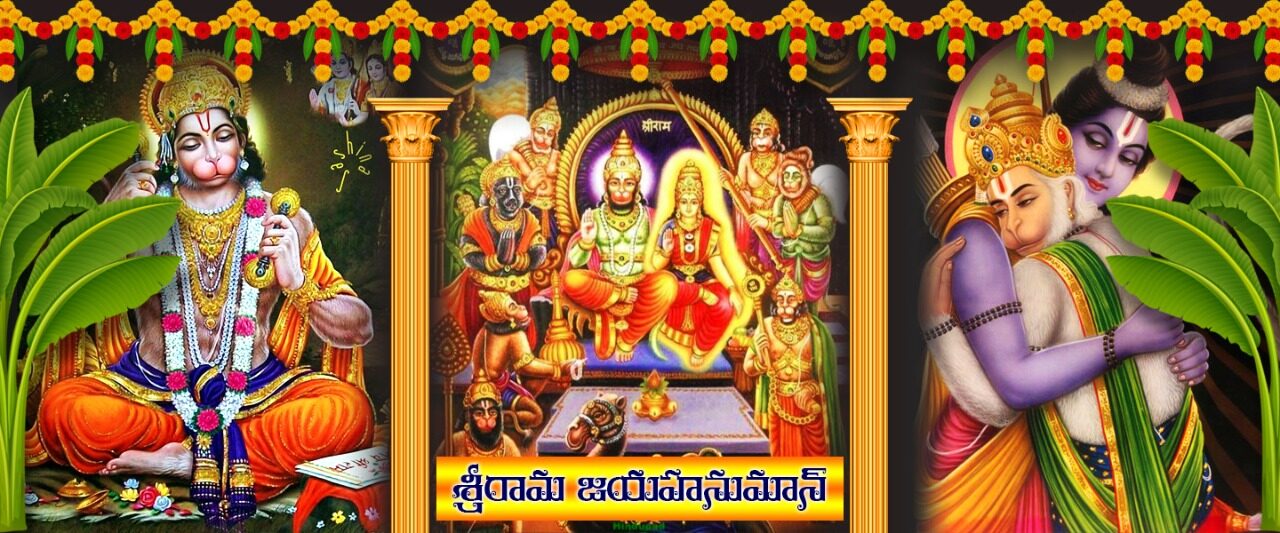
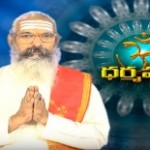

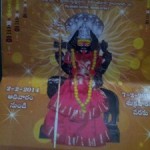
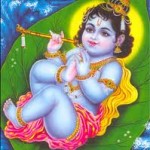


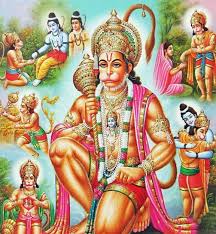
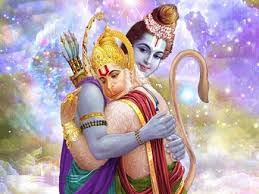
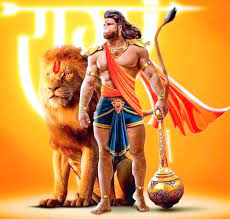
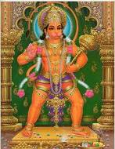
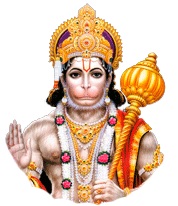
Be First to Comment